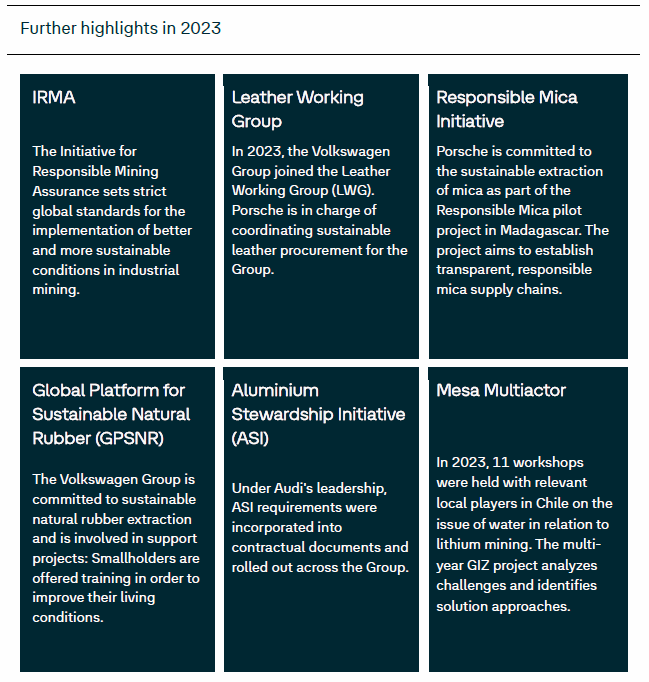Volkswagen Group: Fourth Responsible Raw Materials Report published

“Responsible procurement of raw materials is part of our holistic sustainability strategy. Since 2021, we have consequently reported publicly and voluntarily on the Group-wide measures for mitigating human rights and environmental risks in particularly at-risk raw material supply chains in our own report. The focus of that is on our indirect suppliers in upstream supply chains – in other words, where the challenges are greatest. We identify, assess and address risks through our Responsible Raw Materials Management System, currently covering 18 priority raw materials and their respective supply chains. We document our results every year, highlighting both progress and challenges, with the Responsible Raw Materials Report. That is our contribution to greater transparency and sustainable supply chains.”
Dirk Große-Loheide, Member of the Board of Management of the Volkswagen Brand responsible for Procurement and Member of the Extended Executive Committee.

Responsible raw material procurement is part of the holistic sustainability strategy
The report, which has been published since 2021, now covers 18 priority raw materials, including battery materials such as lithium and cobalt. Cotton and magnesium were added as new raw materials last year.
Since 2019, all relevant direct business partners of the Volkswagen Group must undergo a mandatory sustainability rating, in which environmental and social standards are assessed on an equal basis with other sourcing criteria such as costs or quality.
Since 2020, the Volkswagen Group has demanded full disclosure of the supply chain right up to the mining level as part of all new contracts relating to battery raw materials.
As part of the new, holistic regenerate+ sustainability strategy, the Volkswagen Group has set a target for 95% of suppliers to have a positive sustainability rating by 2040.
The Volkswagen Group’s supplier network comprises 63,000 supplier locations in 96 countries. A Group-wide network of 110 sustainability experts not only ensures cooperation with suppliers and business partners on the ground, but also share information and knowledge directly between the Group brands and regions.
The common goal of the collaboration is to increase the traceability of raw materials and establish joint initiatives to develop higher standards and due diligence approaches.
